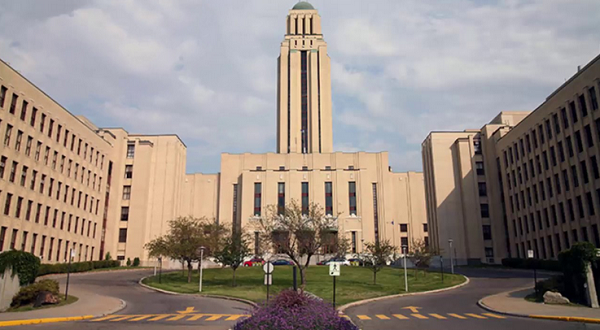Canada’s cap on international study permits having financial implications for universities, leaders say
The impact of a federal government cap on international study permits has been sharper than expected, creating significant enrolment drops and financial consequences for Canadian universities and colleges, according to leaders in the sector.
Although full enrolment data won’t be available until next month, the associations that represent universities and colleges in Canada both say they’re seeing a steeper decline in international students than the federal cap was expected to produce.
In January the federal government placed a cap on study permits that aimed to cut the number issued this year by 35 per cent. The policy shift was a response to pressure in the housing market and other concerns.
Gabriel Miller, president of Universities Canada, the lobby group that represents nearly 100 Canadian schools, said he’s expecting universities will see at least a 45-per-cent drop in international enrolment this fall.
Michael McDonald, director of government relations at Colleges and Institutes Canada, said colleges have already seen a significant drop in applications from abroad, and when final figures are available they’re expecting an enrolment decline greater than 35 per cent.
“The alarm bells are going off,” Mr. Miller said. “Canada’s ability to compete for talented young people who’ll come here and study and then help drive our economy is taking a brutal hit.”
Canada’s reputation as a welcoming place for foreign students has also suffered, he said. That will have an impact on institutions, many of which are projecting deficits as they struggle to find ways to compensate for lower-than-expected international tuition revenue.
“It has big implications for our universities, and that’s showing up most clearly in deficits that universities in different parts of the country are saying they’re now facing,” Mr. Miller said, citing McGill, Concordia, Guelph, and Waterloo, among others.
Over the past decade, international student tuition, often several times higher than domestic student fees, contributed billions in additional funding to Canadian postsecondary institutions. But the program has tripled in size since 2015, prompting the federal government to step in to limit the number of new permits for this year to about 360,000, which it later revised to about 290,000.
Federal Immigration Minister Marc Miller said in an interview that enrolment data this year could be turbulent as the system adjusts, but the declines may indicate the changes are working.
“We’re taking responsibility for an international visa system that’s gotten overheated, and, I would say, used for a purpose that wasn’t intended,” Minister Miller said, describing a shift from what he called an “open trough,” with few limits on how many permits could be issued, to one with more quality control.
“No one can say credibly that these volumes are going to be the death knell of credible institutions. The numbers and the cap that I’ve put into place are still quite high,” he said. “But if we see significant drops, that needs to be analyzed.”
Todd Mondor, president of the University of Winnipeg, said his institution has seen a decline in international enrolment that has created a $4.5-million hole in its budget. International undergraduate numbers appear to be down about 18 per cent, and continuing education numbers are down about 30 per cent, he said.
Dr. Mondor said he’s hopeful the university can make up some of the difference with better numbers in the January admission cycle. He points out that federal processing of applications came to a halt for a few months after the cap was announced in January, which would have deterred some applicants.
But his university, like others, will have to find ways to make up the financial shortfall.
“We’ll do everything we can to preserve student support services and make sure students succeed here, but there will be impacts. We’re just keeping our fingers crossed they can be minimized,” he said.
Larissa Bezo, president of the Canadian Bureau for International Education, warned months ago that the policy change would have an impact on how Canada is viewed in a competitive international market.
“The perception of us having closed the doors to international students has resulted in very significant damage to our sector,” Ms. Bezo said.
“What we have to appreciate is the recovery time. When you have that kind of reputational damage, given enrolment cycles, etc, you’re looking at a five to seven-year time horizon,” Ms. Bezo said.
This article was first reported by The Globe and Mail













